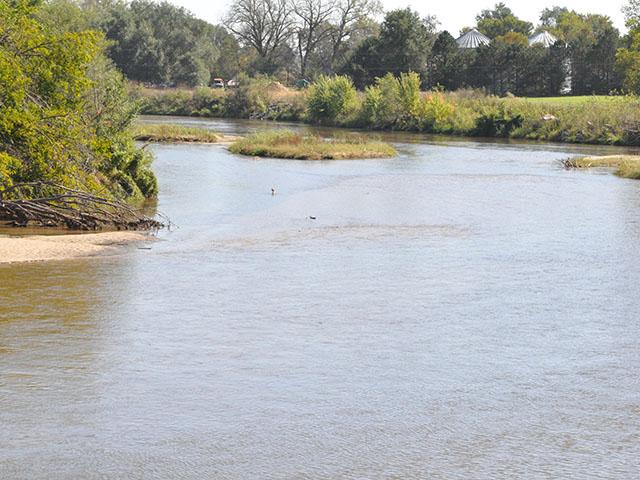Will EPA Need to Pull Biden WOTUS Rule?
SCOTUS Ruling in Sackett May Require EPA to Withdraw Biden WOTUS Rule
LINCOLN, Neb. (DTN) -- While the aftermath of the Supreme Court's ruling in Sackett v EPA may continue to unfold for years to come, one thing in the near term is clear: the Biden administration may have no choice but to pull its recently finalized waters of the U.S. rule.
The justices unanimously ruled on May 26 that the so-called significant-nexus test used by the EPA and U.S. Army Corps of Engineers to make Clean Water Act determinations was illegal. The significant-nexus test is the backbone of the Biden administration rule.
Immediately following the ruling the EPA asked the U.S. District Court for the District of North Dakota for a delay to June 29 in an ongoing court battle over the Biden rule. That court granted an injunction preventing the enforcement of the rule in 24 states.
"I think it requires a complete rewrite," Daren Bakst, deputy director and senior fellow at the Center for Energy and Environment at the Competitive Enterprise Institute, said during a Zoom call with reporters on Tuesday.
"I think they're going to have to withdraw the rule. I don't see any way around that. The rule relies heavily on a significant-nexus test and realistically they're gonna have to withdraw it and then start again."
The Competitive Enterprise Institute is a libertarian think tank based in Washington, D.C.
In the meantime, Bakst said the EPA and Corps of Engineers will have to issue some interim guidance to field officers and others that reflects the Supreme Court's ruling.
"And then they need to develop a rule that's consistent with the opinion," he said.
P[L1] D[0x0] M[300x250] OOP[F] ADUNIT[] T[]
"You're overreaching for 30-something years or however long it's been. Maybe actually don't do so and actually try to keep it consistent with what Congress wanted and what the court's telling you, then maybe we can kind of avoid these issues," Bakst said.
Charles Yates, an attorney with the Pacific Legal Foundation, the legal firm that successfully represented the Sacketts, said the ruling was one of the most significant rulings issued by the Supreme Court during the current session.
The court essentially pulled back on EPA's and the Corps' authority they have asserted for decades.
"In sum, we hold that the CWA extends to only those 'wetlands with a continuous surface connection to bodies that are 'waters of the United States' in their own right,' so that they are 'indistinguishable' from those waters," Justice Samuel Alito said in the majority opinion.
"This holding compels reversal here. The wetlands on the Sacketts' property are distinguishable from any possibly covered waters."
Alito said the Clean Water Act's reach is far narrower than EPA has opined.
"The EPA, however, offers only a passing attempt to square its interpretation with the text and its 'significant nexus' theory is particularly implausible," Alito wrote. He said the definition of waters of the U.S. is more limited. "And, in any event, the CWA never mentions the 'significant nexus' test, so the EPA has no statutory basis to impose it," Alito stated.
Yates said the court's majority put a greater focus on looking at the text of the Clean Water Act to judge congressional intent behind the law.
"It puts very significant limitations on the agency's authority and it's gone a very long way in restoring Congress's intent for the Clean Water Act," he said.
"It's important to note just the breadth of authority that they claim. And the fact that really often what we're talking about, particularly when we're talking about wetlands, are really just quintessentially ordinary land use activities that no rational person would think of when talking about water pollution. This is the incredibly broad way the statute has been applied. It goes well beyond sort of traditional notions of water pollution."
In the days following the ruling environmental and conservation groups said nearly half of all wetlands lost protection.
Bakst said the ruling, however, restored the proper balance between federal and state regulation of waters.
"That shows a complete misunderstanding of the case and the issues," he said.
"These cases are not focused on bad people dumping toxic waste into pristine rivers, instead these are generally well-intentioned people trying to do normal things like a farmer plowing land or a family shifting dirt to build a dream home. The states will play the role, they'll fill the gap. And it's really critical to remember that there's also private property and property owners that play a critical role as well in addressing solutions," said Bakst.
Todd Neeley can be reached at todd.neeley@dtn.com
Follow him on Twitter @DTNeeley
(c) Copyright 2023 DTN, LLC. All rights reserved.




